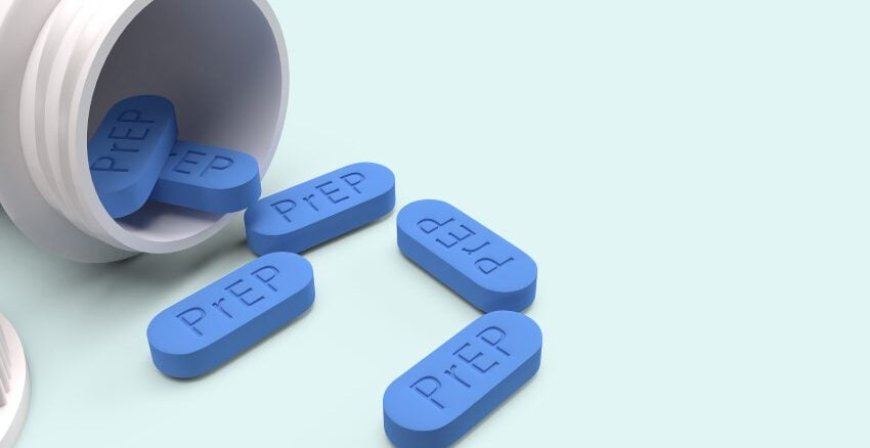The U.S. State Department has issued a memo stating that the Donald Trump’s Emergency Plan for AIDS Relief (PEPFAR) will now only provide HIV-prevention medications, such as pre-exposure prophylaxis (PrEP), to pregnant and breastfeeding women (PBFW), excluding other high-risk groups such as LGBTQ+ people, sex workers, and individuals at greater risk of contracting HIV. The decision, linked to a broader U.S. foreign aid policy change, has drawn backlash from HIV advocacy groups, medical professionals, and international health organizations.
The memo, distributed by the State Department’s Global Health Security and Diplomacy program, states that individuals at high risk of HIV infection, including LGBTQ+ people, can no longer receive PrEP funded by PEPFAR during a 90-day “pause” on U.S. foreign assistance. This hold was implemented following President Donald Trump’s executive order aimed at reevaluating and realigning U.S. foreign aid. According to the memo, the pause is meant to ensure that U.S. funding is strictly aligned with Trump’s foreign policy, including eliminating programs deemed “woke” or inconsistent with his administration’s values.
Critics of the policy argue that limiting access to HIV prevention medications based on narrowly defined criteria will disproportionately impact vulnerable populations around the world. Wayne Besen, executive director of the LGBTQ+ advocacy organization Truth Wins Out, condemned the memo, calling the move “cruel” and accusing the Trump administration of intentionally discriminating against marginalized groups. “This could cruelly lead to the infection, and eventual death, of hundreds of thousands of people worldwide,” Besen said, pointing out the contradiction in a supposed “pro-life” agenda that ignores the health needs of at-risk populations.
Secretary of State Marco Rubio, who has been at the center of the decision, issued a waiver for essential medical services affected by the funding pause. However, the memo clarified that PEPFAR funds would be restricted in several ways, including denying PrEP medications to everyone except PBFW, halting HIV spread surveys, and suspending tracking systems for issues such as child abuse. These changes have disrupted services provided by clinics in numerous countries, with many healthcare workers reporting unpaid wages and the cessation of critical prevention programs, according to the Kaiser Family Foundation (KFF).
The restrictions are expected to result in rising HIV rates, outbreaks, and preventable deaths, as the loss of funding limits the ability of health workers and researchers to manage the ongoing HIV/AIDS crisis. Critics of the policy note that cutting off access to prevention tools could exacerbate the global health crisis and undermine decades of progress in fighting the epidemic.
Adding to the controversy, these cuts to foreign aid coincide with the Trump administration’s efforts to dismantle the U.S. Agency for International Development (USAID), which has historically played a key role in implementing global health programs, including HIV/AIDS relief. The Trump administration’s unofficial Department of Government Efficiency (DOGE), led by billionaire Elon Musk, has focused on reducing or eliminating agencies it deems ineffective or unnecessary, including USAID. Musk has described the agency as a “criminal organization” but has not provided evidence to support this claim. In the wake of these actions, many USAID employees have been furloughed or dismissed, further complicating efforts to provide aid to those in need.
The suspension of USAID’s website and the mass layoffs have left PEPFAR recipients without essential guidance and support. According to sources, organizations receiving HIV prevention funding must now apply for special waivers to access any remaining resources. Lawsuits have been filed in response to the dismantling of USAID, with contractors demanding payment for millions in outstanding bills, and nonprofit organizations, including the AIDS Vaccine Advocacy Coalition (AVAC), calling for an end to what they describe as illegal and unconstitutional actions against the agency.
The global health community has expressed concern over the potential consequences of these policies. HIV/AIDS experts warn that the disruptions in funding and the narrowing of eligibility for preventive care could lead to a resurgence in HIV cases, particularly in regions where the virus remains a significant public health challenge. As the situation develops, international organizations and health professionals continue to advocate for policies that prioritize the needs of vulnerable communities, including LGBTQ+ individuals, sex workers, and those at the highest risk for HIV transmission.
The State Department’s restrictions on PEPFAR funding remain in effect for the time being, and the future of U.S. foreign aid and global health programs remains uncertain as the Trump administration continues to reevaluate its priorities.


 Mark
Mark 





